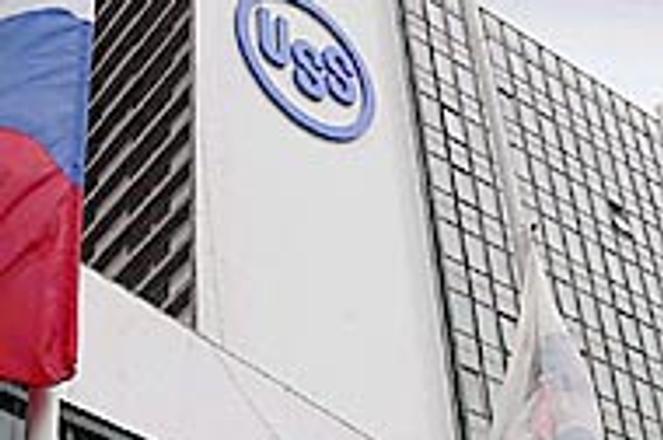US Steel Košice is among those foreign investors who have attracted suppliers to Slovakia.photo: TASR
FOREIGN businesses are likely to adopt a more cautious approach to investing in Slovakia this year because of the upcoming parliamentary elections, government officials have said.
However, there are hopes that established investors could attract some of their foreign suppliers to set up in Slovakia soon.
Investment experts at the Economy Ministry said that the government would like to finish the partial privatisation of its energy utilities such as gas industry SPP and three regional electricity utilities before the September elections. It would also be relying on large foreign investors, mainly carmaker VW Slovakia and steelmaker US Steel, to use their reputations to promote Slovakia abroad and bring more of their suppliers into the country.
While the country should not expect many new foreign companies to break ground in Slovakia, privatisation and supplier-based investments should bring Slovakia a record investment figure, the officials said.
"We can hardly expect inflows of new 'greenfield' foreign investment into Slovakia in an election year," admitted Martin Kapko, the deputy director of the business environment department at the Ministry of Economy.
But he added: "Companies such as VW Slovakia and US Steel have the potential to lobby for Slovakia abroad and attract their suppliers to come here, so apart from revenues from privatisation, foreign capital might also come from that source."
Other projects which may generate interest among foreign investors, given the finished infrastructure and cheap land they offer, include the industrial parks of eastern Slovak chemicals firm Chemes Humenné and connectors manufacturer Molex Slovakia. Electronics company Siemens, which has several business interests in Slovakia, has also given notice of new investments.
"Investors who are attracted by these big companies do not take into consideration the fact that there will parliamentary elections at the end of September. They come because of their customers," Kapko said.
"Take the example of VW Slovakia - this company has had good relations with every government because every government wanted good relations with them. They are a sort of 'shop window' for Slovakia because they turn out 15% of total Slovak exports," he added.
While government officials expect a deceleration in the absolute number of foreign investors moving to Slovakia this year, investment inflows should remain strong, with a 49% stake in gas utility SPP expected to bring in as much as $3 billion, half again as much investment as the country drew in the record-setting year 1999.
At the same time, officials say the government is continuing to fish for greenfield investors. The 2002 budget of Sario, the government agency for supporting and promoting foreign investment, at Sk75 million ($1.56 million) is Sk33.5 million higher than in 2001.
The agency plans to take part in a May investment conference in Washington where Visegrad Group countries including Slovakia, the Czech Republic, Hungary and Poland, together with Austria, will promote central Europe as an investment destination.
"This year Sario has a sufficient budget to take a variety of measures to promote investment into Slovakia, and that's what's important, not the fact that this is an election year," said Martin Šikulaj, Sario's coordinator at the Economy Ministry.
Despite the confidence of ministry officials, independent investment analysts said elections, and Slovakia's political future, would have a significant impact on investors.
Marek Jakoby, an analyst with the Bratislava-based Mesa 10 think tank, said politicians such as Deputy Prime Minister Ivan Mikloš would likely be distracted by elections, and thus might not play as significant a role in attracting investment as they had in the past.
"Although Sario has planned some activities, I don't see Slovak politicians participating as actively in conferences and investment road shows in 2002. They will probably focus on their pre-election campaigns and spend their time in Slovakia lobbying for their parties in different regions," Jakoby said.
He added that even investors coming on the coattails of established foreign businesses would likely wait for the outcome of the elections before putting their money into Slovakia.
"For them it's important to see who forms the new government and whether Slovakia is accepted into Nato at the Alliance's November summit in Prague. For these investors it is particularly important that Slovakia continue in its pro-Western stance after the elections, because that's where their markets are," Jakoby said.


